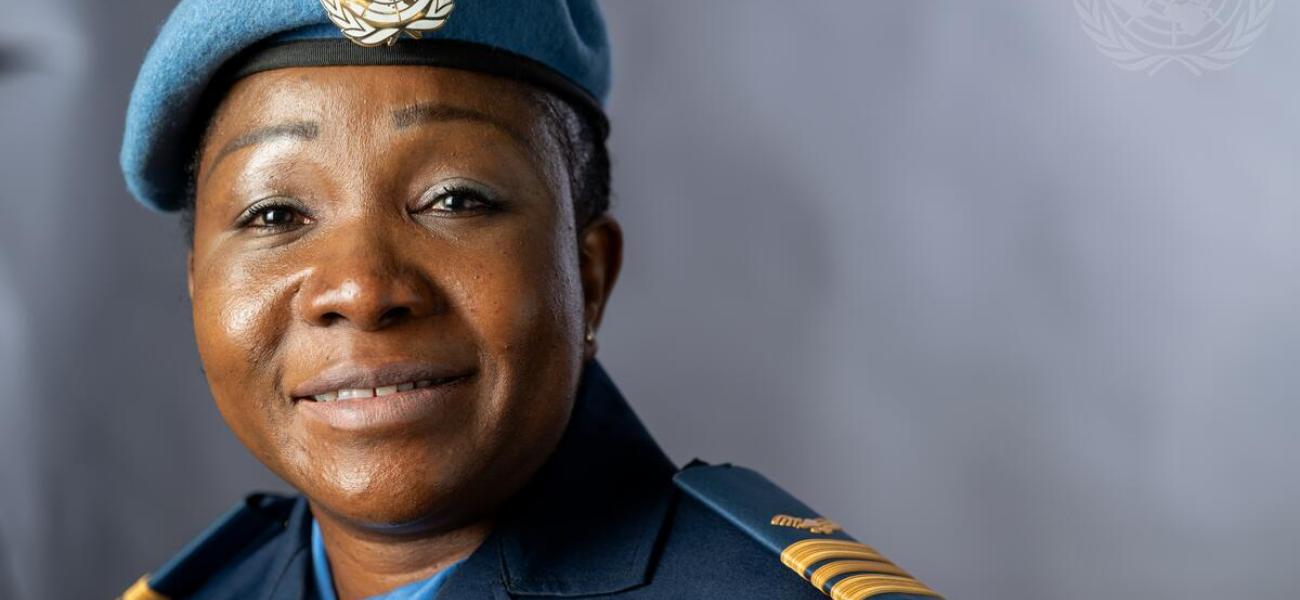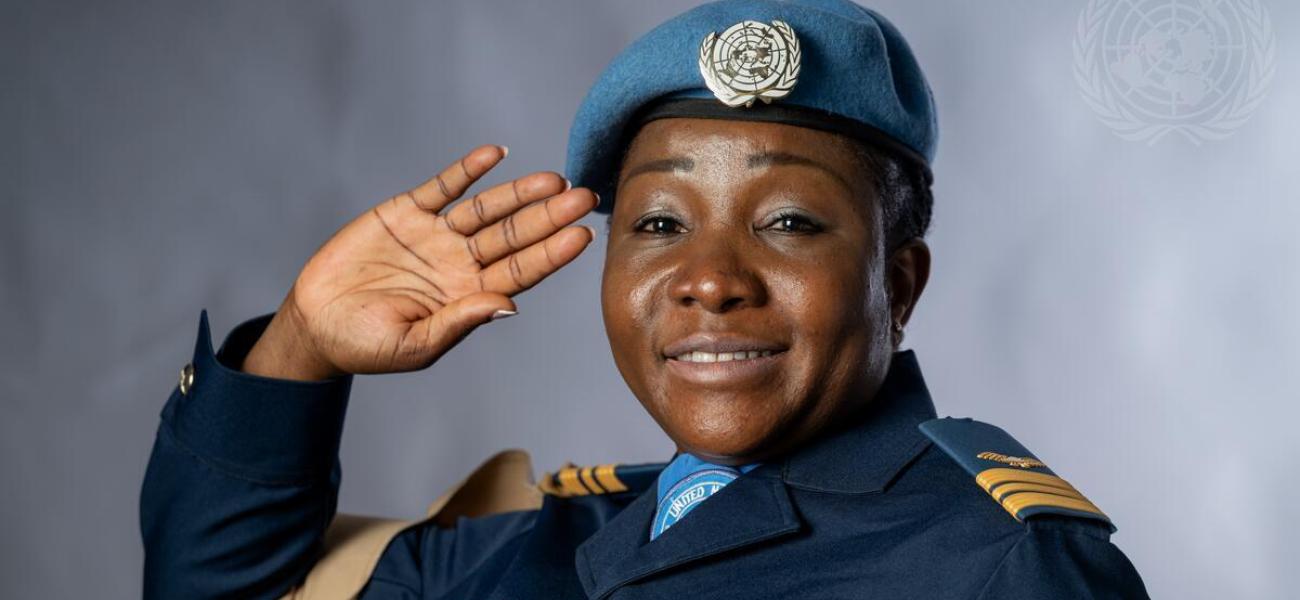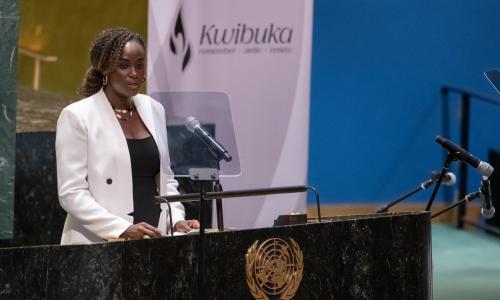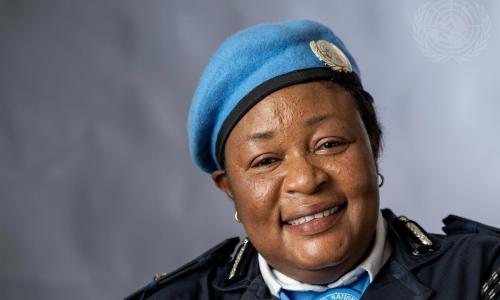As a young girl in Ghana, Sharon Syme, did not think she was really cut out for a career in the military. The formality and stern demeanor of offices seemed too rigid for her liking. Yet, the discipline and sense of order they held somehow fascinated her.
Soon after graduating with a master’s degree in international health from Japan, her uncle, a retired officer, encouraged her to join the military. She obliged and has never looked back since.
So, when her government nominated her for deployment as the Military Gender Adviser for the United Nations Interim Security Force for Abyei (UNISFA), she knew it was more than just a posting. It was a calling. “I saw an opportunity to serve, to advocate, and to influence change in a meaningful way,” she said.
That conviction has earned her the 2024 United Nations Military Gender Advocate of the Year Award, recognising her outstanding commitment to promoting gender equality and empowering women and girls in one of Africa’s most fragile regions.
How does she feel about the award?
“I’m touched. It means my efforts have been recognised,” Ms. Syme told Africa Renewal during an interview at the UN headquarters in New York where she received her award.
Her hard work has paid off. Since arriving in Abyei in March 2024, where she is now a Squadron Leader, Ms. Syme has launched a series of impactful initiatives—from community-wide health campaigns to military gender sensitisation trainings.
Gender lens
As a gender adviser, Ms. Syme’s core responsibility has been to mainstream gender perspectives throughout UNISFA’s military component.
Asked why it is important to integrate gender perspectives into peacekeeping operations, she said: “Because we need to understand the gender dynamics within our area of operations. Otherwise, we may not be able to have the right interventions or carry out the right activities.”
“I realised that if gender mainstreaming was going to be effective, everyone needed to understand what it meant. So, I developed and delivered in-person training across all military contingents,” she said.
From Sector North to South and Centre, she visited every Company Operating Base, reaching more than 1,500 personnel in person. She insisted on full attendance, carefully tracking gender-disaggregated data. She met separately with commanding officers to deepen their understanding of the UN’s gender parity strategy and the WPS mandate.
“After these interactions, many officers told me, ‘We didn’t know how important this was.’ That’s when I knew we were making progress,” Ms. Syme shared.
Her personal commitment and direct engagement paid off. Peacekeepers began forming gender-balanced patrol teams and actively seeking feedback from women in local communities. Her work earned not just compliance, but collaboration. “Because I built personal relationships, they supported my work—with logistics, with presence, with enthusiasm,” she said.

Engaging women
Beyond the UN base, Mr. Syme turned her attention to the communities of Abyei. Alongside civilian and police gender officers, she launched a health campaign on gender-based violence and harmful traditional practices such as early child marriage and female genital mutilation (FGM).
In Sector North, her team met local opinion leaders—both men and women—to find out what the community felt. It was clear that many women remained silent during such community meetings.
“We realized that the women couldn’t speak freely in front of men,” she said.
So, Ms. Syme and her team members arranged to meet with the women privately. What they heard from these women was heartbreaking—stories of girls married off at age 8 or 9, of mothers mourning daughters lost to unsafe FGM procedures, of futures cut short and hopelessness.
One woman shared her sad story: she is unable to have children because of complications from FGM. Her voice, like many others, became part of the testimony that inspired Ms. Syme to act.
She brought in medical professionals from UNISFA’s level 2 hospital—nurses, midwives, gynecologists—to conduct a two-day sensitisation campaign with men and women separately. Graphic visuals and real-life stories helped shift perceptions among the locals.
“The men were shocked,” Ms. Syme recalled. “Many apologised. They said they didn’t know the extent of the harm.”
Opinion leaders pledged to rethink some of these practices, and the women felt heard. “It was one of the most successful interventions I’ve been part of,” she said.
For Ms. Syme, the success of any gender advocacy action plan lies not in having a dedicated role for a gender office, but in making gender mainstreaming everyone’s responsibility.
“Success comes from diversifying military representation at checkpoints, in operating bases, and on patrols,” she said. “But it also comes from having gender-responsive leaders who listen and act.”
Her efforts have also helped build bridges between components of the mission and with the communities they serve. She led commemorations for UN Security Council Resolution 1325 and International Women’s Day in March, mobilising support from all sectors. Her personal rapport with commanding officers made it easier to gather resources and coordinate joint actions.
Cultural lens
Ms. Syme’s impact has not only been tactical but also cultural. “We need to understand the gender dynamics of the area we’re working in,” she explained. “Who speaks? Who is silent? Who holds power?” These nuances, she believes, are essential to truly protect civilians and foster sustainable peace.
For her, integrating gender into her work isn’t just about ticking the boxes—it’s about justice, dignity, and relevance. “Without a gender lens, we risk missing the real picture,” she said.
As she receives her award at UN Headquarters in New York from Secretary-General António Guterres, Ms. Syme remains focused on what lies ahead. “I hope this recognition inspires other peacekeepers—especially women—to lead boldly,” she said.
About Sharon Mwinsote Syme
She graduated from the Ghana Military Academy after obtaining her first master's degree in international health at Japan’s Tokyo University.
A year later, she joined the Ghana Armed Forces Medical Corps and is the Deputy Chief Dietician at the 37 Military Hospital in Accra, Ghana.
Her first peacekeeping deployment, she joined UNISFA in March 2024 as the Mission’s Military Gender Adviser.
About the Awards:
The UN Military Gender Advocate of the Year Award is presented annually since 2016 to a military peacekeeper - male or female - who has shown outstanding commitment and leadership in promoting the principles of UN Security Council Resolution Resolution 1325.
The resolution calls on actors to mainstream a gender perspective in all aspects of peacekeeping and peacebuilding and to ensure women’s participation in peace and political processes.
The Resolution also calls for the protection from, and prevention of, conflict-related sexual violence and for an expansion of the role and contribution of women in UN operations, including of uniformed women peacekeepers.






